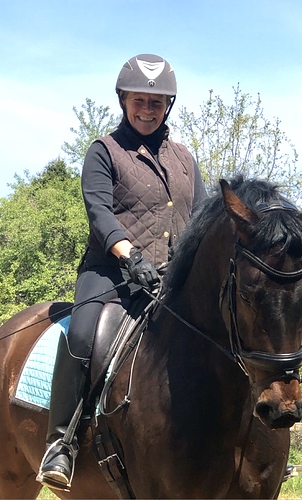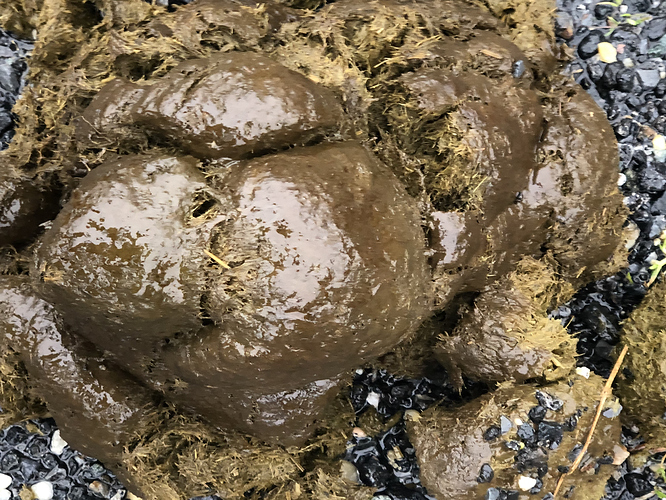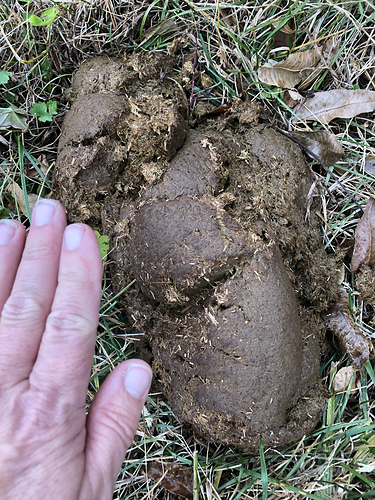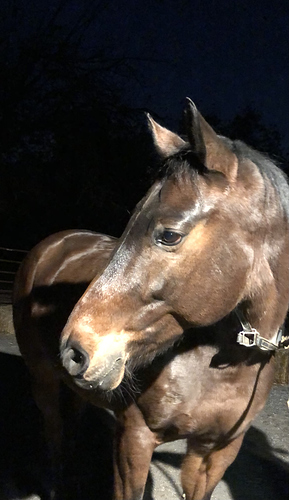He is gorgeous!!!
I do not know the name of the lab where the sample went, but I can check. The testing was done on stomach fluid, pulled at the time of gastroscopy. While I have submitted dozens of manure samples all over the place, no results have come back. I do know that the UGA study is looking at DNA in manure, but not sure what that might show. So, he was diagnosed through stomach fluid - not manure.
If you have the resources, you might look to get an ultrasound of his intestinal tract - as much as they can see anyhow. There was a lot of visible thickening which went away after treatment. We also did multiple biopsies early on, which showed eosinophils - on their own not perhaps too concerning, but they become a marker for inflammation when your horse has chronic colic. Vets were not really focused on the histopathology until new vet looked at them as an important part of the puzzle.
One thing I started him on (and have taken him off in the last month) is extra strength GasX capsules - they have nothing in them but simethicone, and have been deemed safe by all my vets, although they won’t comment on whether they think it works. For my 1150 lb horse, I was giving 12 am and pm. I dialed that back over time, but I kept him on that for probably a month.
Curiously, when he was so ill my horse also looked like sh*t with a rough nonshiny coat - he just really wasn’t looking like a 9 year old horse (coming 10) who was thriving. That all changed once gut bacteria was better under control. He’s super shiny now. Even his eye looked just ‘resigned’ and flat.
One thing that only became apparent YEARS later is that he was really holding himself over his back - probably to keep his guts from moving. That turned into its own rabbit hole. He does get regular massage, and I have this thing from Equilibrium Therapy for on the spot massage - he does love that. But, to your point, while he’s been suffering, he has felt awful and the trot and canter departs were all a bit of WHOA NELLY - terrifying leaps on a rock hard back with the head up in the air. So, so so much better now - everything is soft and light.
I just read again, and then re-read your post … it just sounds to me like he’s got gut tissue pain. Inflammation will cause all kinds of unhappy behaviors, and he just really sounds like it hurts. If you can’t get a vet to ultrasound (one who can read/see inflammation), and if you want to take any chance, I would see if you could put him on a course of steroids to bring inflammation (if it’s there) under control. I would not want you to go through what I did, or have to spend what I did, and that was what really helped us turn the corner and improve his comfort. But, I know it comes with risks and not sure what your vets might say.





